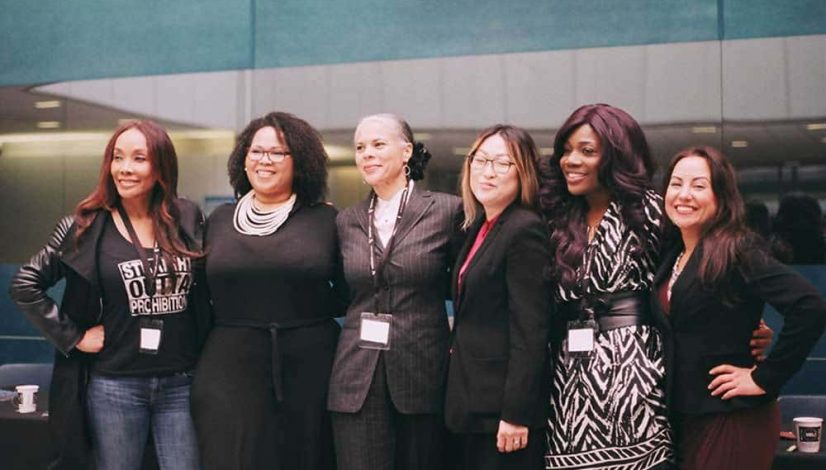Picking The Brains Of Leading Female Cannabis Execs
The post Picking The Brains Of Leading Female Cannabis Execs appeared first on High Times.
We’d been thinking about doing a series on female leadership in the marijuana industry for quite some time; after all, women occupy more than one-third of executive positions in the space—well above the global average for all industries. It was, however, a panel held during the Viridian Cannabis Investment Series, a very-serious business event focused on diversity that provided the context we were looking for to get started: an article picking the brains of leading female cannabis execs.
It’s next to impossible not to feel at awe when you realize that the most badass speakers at an event featuring former NFL players, like the gigantic Marvin Washington and the not-so-tiny Ricky Williams, are women. But that was exactly the case.
6 Women Weed Warriors Leading The Way
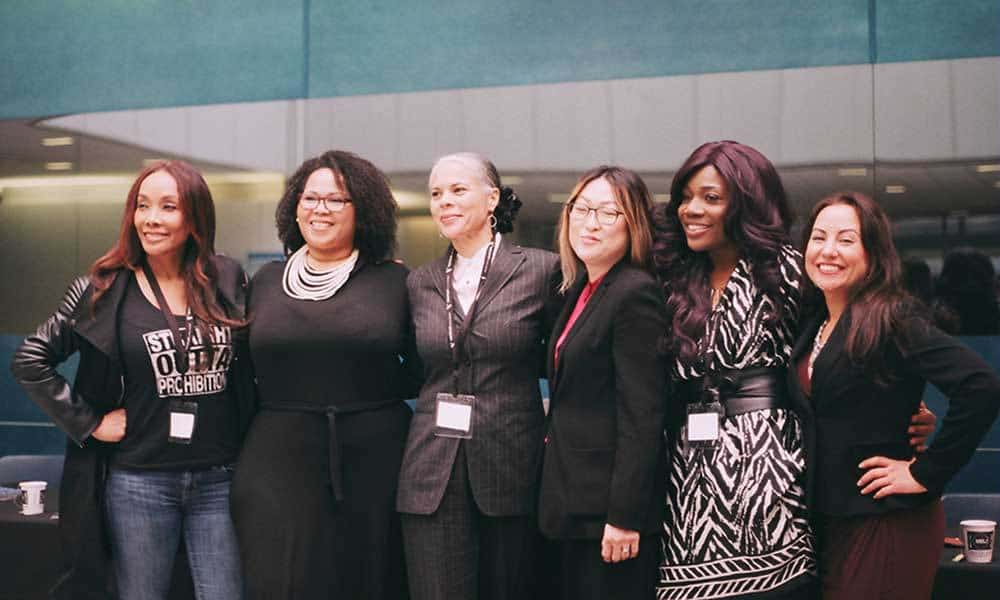
“Now it’s time for our panel on women executives,” Viridian’s president Scott Greiper voiced, setting the stage for April Walker, Bonita “Bo” Money, Dasheeda Dawson, Gia Moron, Kristin Jordan and Larisa Bolivar. Either rocking a pantsuit or wearing a “Straight Outta Prohibition” T-shirt, they all looked as powerful as they looked empowered.
Females account for almost half (46.8 percent) of the United States’ total labor force. Nonetheless, as per recent data, women held only 23 percent of senior roles in U.S. companies, and roughly one-third of all businesses had zero ladies among their senior management teams.
In this context, that one-in-three figure presented at the beginning of this article acquires much more relevance—although there is still a lot of progress to be made.
The time has come to rebrand, to reevaluate and to appreciate the female role in the industry for what they bring to the table as women. It’s no longer required of women to roughhouse like the boys, wear pantsuits or drink whiskey to reach success. Women can, if they want to; but there’s no need to display these attributes like Boy-Scout badges, conceived to prove a point.
From business leaders to decision makers, advocates and mothers, women are creating their own lane to be seen and heard in the cannabis industry.
But, who are these women who decided to leave promising corporate careers and put personal ventures aside to make such an impact in a high-risk industry? Which are the factors that have determined their success in this arena?
Anxious to find out more, we decided to get all six women in the panel together after their presentation to have a little chat.
Female Cannabis Execs Leading As Activists & Advocates
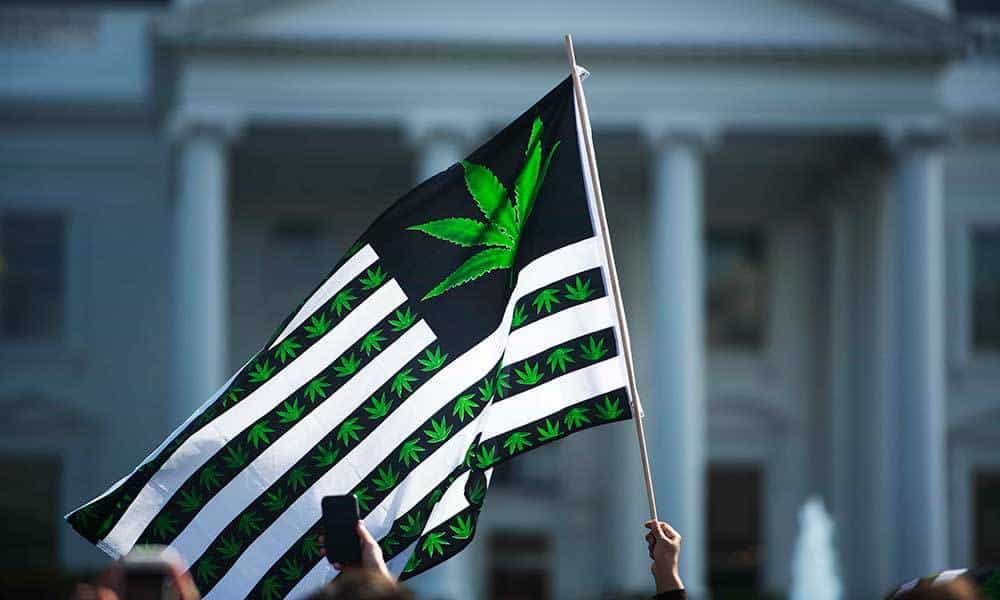
Getty Images
Now out of the cannabis closet, these women are crusading to break with the oh-so-outdated and patriarchal idea that ladies should be seen but not heard.
And they are doing a great job at it.
Gia Moron is the public relations director at Women GROW, the largest women’s organization in the cannabis industry committed to cultivating women leaders.
“We create networking spaces, find resources, connect with other professionals within the cannabis space. The key is that it’s not just women overall; my passion is behind women of color,” she told High Times.
In this line, April Walker, CEO of Walker Wear, added: “Women understand women, women relate to women. It’s important for women to help each other out and understand the opportunity in cannabis right now. Who you collaborate with is probably more important than who you hire right now, so thinking about that as it comes to this opportunity is what’s right.”
Kristin Jordan is an attorney and activist who formerly served as the executive director of the Cannabis Cultural Association, a nonprofit organization focused on communities that have been impacted by the War on Drugs. They promote economic opportunities in the legal cannabis industry and social justice reform for people of color.
Take a place like New York, Jordan suggested, where arrests for possession are actually increasing.
People cannot be oblivious to how many of their community leaders, “the elders,” have been—literally and figuratively—shackled from participating in the cannabis market, Jordan noted.
This has opened the gate for women to rise up, to act and to inform people about the impact of the War on Drugs that is ravishing marginalized communities.
Bo Money founded Women Abuv Ground, an organization dedicated to helping women and people of color transition into the legal cannabis market.
“We create resources, education, networking and overall support,” she explained. “Ultimately, people of color are the most unrepresented part of the industry, even though they paid the highest price for the War on Drugs.”
Larisa Bolivar is the executive director of the Cannabis Consumers Coalition, an organization devoted exclusively to advocating for individual rights of medical and recreational cannabis consumers.
Dasheeda Dawson is the president of MaryJane Marketing, a digital-focused strategic marketing and brand management firm supporting cannabis and hemp companies. Their objective is to help “lead the way for this rebranding of cannabis and transformation from taboo imagery to more branded mainstream cannabis experiences,” she explained.
Female Cannabis Execs Leading As Health Care Decision Makers

Getty Images
Why do you think women have a larger participation in the cannabis industry when compared to others?
What’s special about this industry?
“Women are health care decision makers,” Bolivar answered. “In fact, women make 85 percent of all purchase decisions, so we were already behind the curtains, taking care of people, using cannabis.”
She then moved on to share the story of when she first learned how to make cannabis topicals.
It was her neighbor, an 85-year-old Mexican “curandera” (healer), who told her to “take rubbing alcohol and marihuana sticks and mix them.”
This, logically, was quite shocking to Bolivar; she wasn’t expecting the octogenarian to be savvy in these ways.
Yet, when she came to think about it, it made absolute sense: women have, for centuries, been spending their whole lives taking care of their families. So even though the decision to make cannabis illegal was political and/or ideological, women have always known it is medicine, she suggested.
Unsurprisingly, Bolivar came out of the cannabis closet after a close encounter with the plant’s healing power.
Cannabis was really effective in helping her uncle battle multiple sclerosis, she told us.
The case was similar for April Walker, whose mother suffered from “really bad arthritis.” It was only when she “joined the research” around cannabis that she stumbled upon CBD oil, which proved very useful in treating her mother’s (and other family members’) symptoms.
Bonita Money’s story is not far from that, either.
When her friend Princess Inge Hazebroek, a reality TV star in the Netherlands, contracted the MRSA bacteria—a drug resistant staph infection—doctors wanted to amputate the affected area. After weeks of research, however, Princess Inge came across what seemed like an option: cannabis. Apparently, MRSA is susceptible to terpenes found in the plant.
This situation ended up leading Money to create That Glass Jar, a CBD-infused topical, which she claims cured her friend’s MRSA.
“I started researching the issue and found that there were specific organic extracts, like oregano oil, that could work alongside the cannabis terpenes, so I made an oil and a cream and took them to Princess Inge,” Money explained. “Within six days, it had killed the bacteria.”
Female Cannabis Execs Leading As Mothers
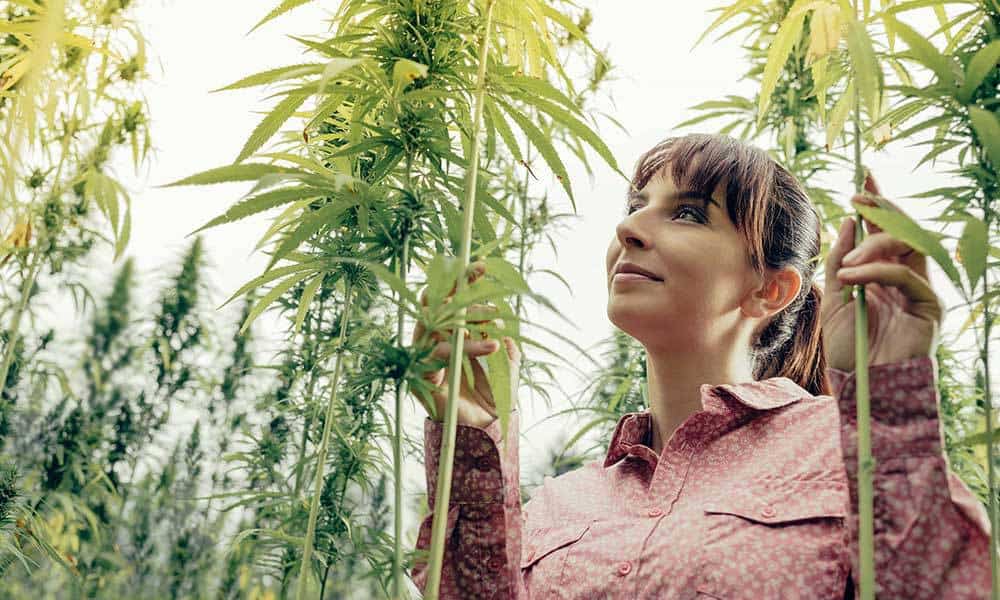
Getty Images
Like many other executives in the cannabis business, Dasheeda Dawson has a son. He’s 13 years old. So, we wondered if she’s worried about him becoming a “pothead.”
“I love that you ask me that question! We’re an open cannabis family,” she responded with a smile on her face. This means they keep weed in jars on the table and that her son is very educated about it.
“I am not worried,” she assured.
She even compares looking at buds and learning about indicas and sativas with a cannabis-consultant-mom to a science project.
“I think the more we educate, the better,” she said. She followed up with a notoriously spot-on comment about the conception of cannabis as a “gateway drug” and how it is the plant’s illegal status, and not marijuana itself, that puts youth in danger.
“I think that the misconception that cannabis is the ‘gateway drug’ is blown out of proportion,” Dawson said. “The gateway is actually the drug dealer, because if you feel like you’re already doing something illegal and your drug dealer offers you something else from his or her ‘assortment’ (that’s also illegal), you are like ‘OK, well, I’m already doing something illegal, so why not try this ecstasy pill?’”
But, her most dreaded nightmare is not that her son will use cannabis, or even face a drug dealer.
“As a mom of a 13 year-old, my biggest fear is that my son is going to be potentially arrested,” she said. “I’m from Brooklyn, New York, and I think a big thing behind decriminalization is that advocacy moms are coming to the forefront because we don’t want our children locked up for something that is completely legal in other states in the country.”
Gia Moron also believes that “the idea that ‘oh, it’s out there, and it’s going to lead to a gateway of trouble’ is full of baloney.”
Moron grew up in a household with a fully-stocked bar. Even though it was mostly for company, it was fully accessible to her from the time she was small. But since she was taught about it, she just left it alone.
The story repeats itself today, with her fully-stocked bar and her 20-year-old daughter.
“Same thing with cannabis, it’s about having the conversation and it’s about educating,” she said. “The problem is that the conversations aren’t being had, it’s the fear that’s being injected into people in terms of the misrepresentation of what it is… There are many people that grew up in households of alcohol. Why is that OK? And then a parent has a bud on the table and having a child around, you know, it’s illegal. It doesn’t make sense.”
The Message
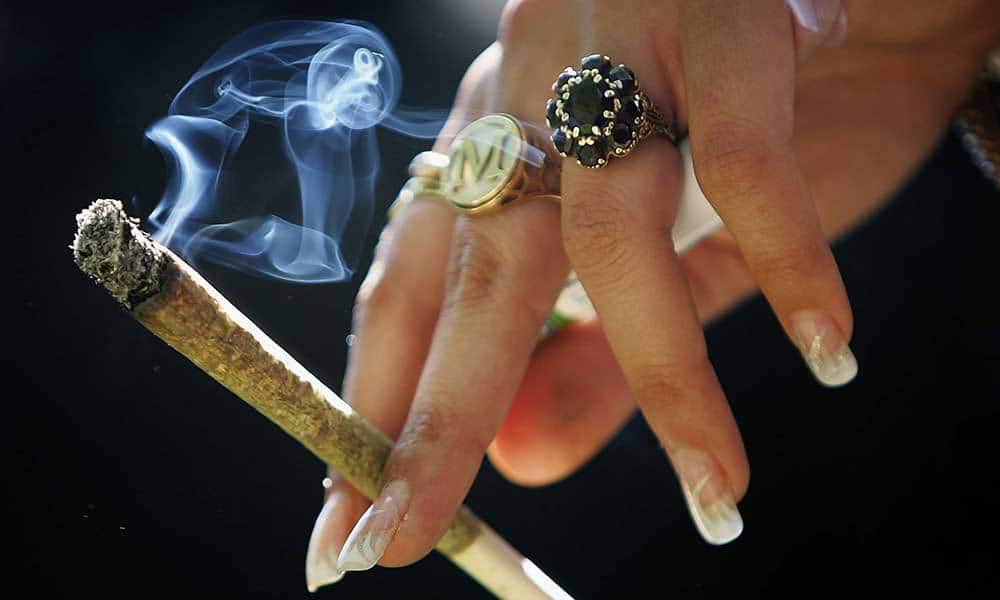
Getty Images
To polish up this demonstration of female leadership, we asked the panel to give us a message for women in general.
The first—and perhaps most important—thing they told us to do is to listen and pay attention, without judging.
Doing research, being self-aware of what you know and what you don’t, and keeping an open mind are the keys to understanding. And with that comes self-acceptance. Only when you know yourself enough to come out of the closet in a powerful way can you begin to help, and that’s what these brave women’s utter objective is—to help.
Once out there, you must rise up, be truly empowered.
This is the only way to stand by the communities and groups who need it the most, and it’s the only road to actual change.
“This is a new opportunity to take that power and seize it and create a new, model industry,” Bolivar asserted. “Women can totally take charge in this.”
Last, but not least, it is your duty to spread the word. Share your stories, as they have shared their own.
It might sound “girly,” but it’s true: “Women celebrate women, and at the end of the day, that translates across the board in every industry,” Walker supplemented.
It takes courage, it takes effort and it takes a lot of soul-searching and awareness to get to be a part this panel of incredibly badass female cannabis execs. These women didn’t sit around, waiting for an opportunity to fall on their laps. Instead, they created it; then they looked that opportunity in the face and said, “Yes.”
The post Picking The Brains Of Leading Female Cannabis Execs appeared first on High Times.

